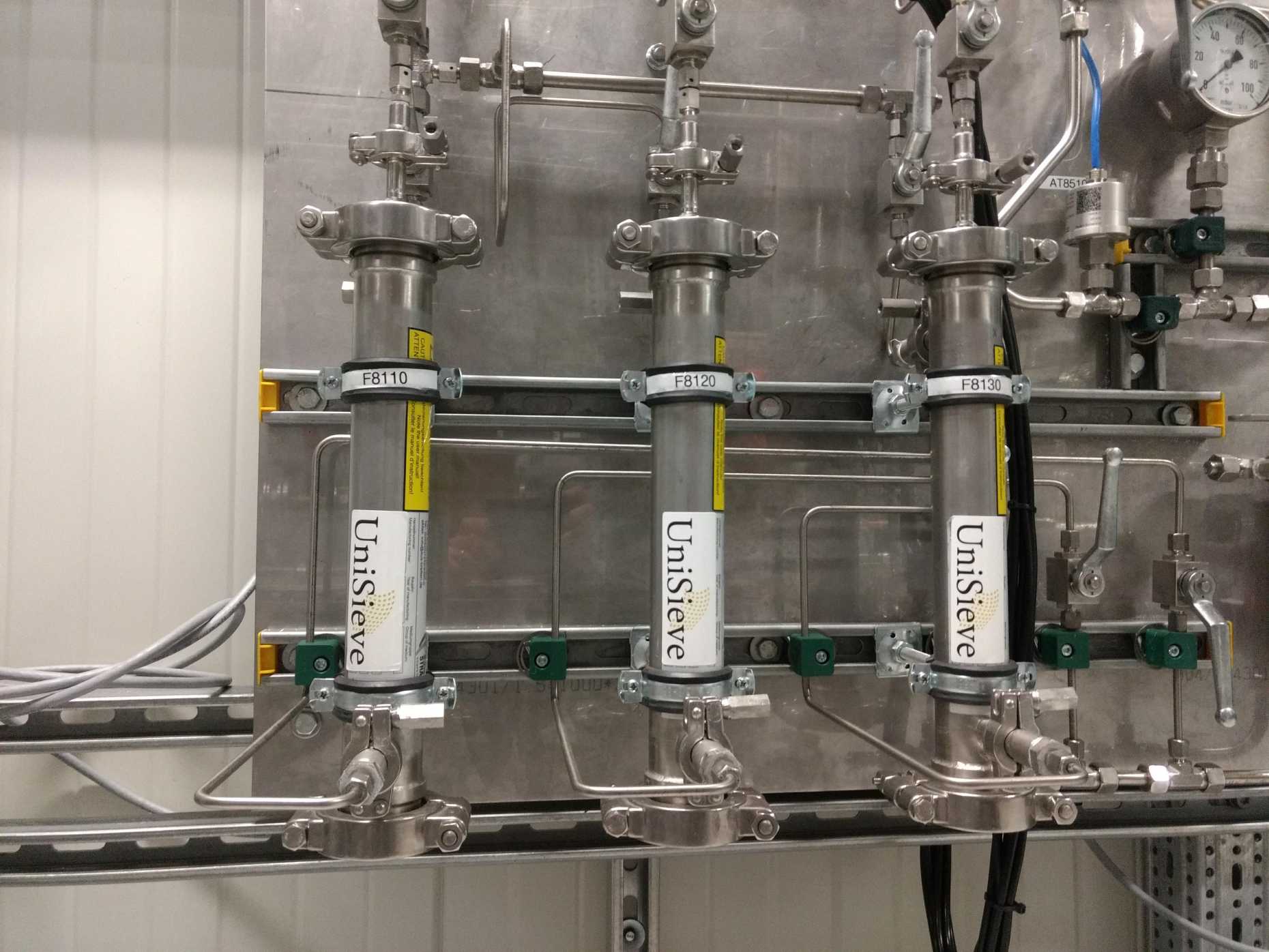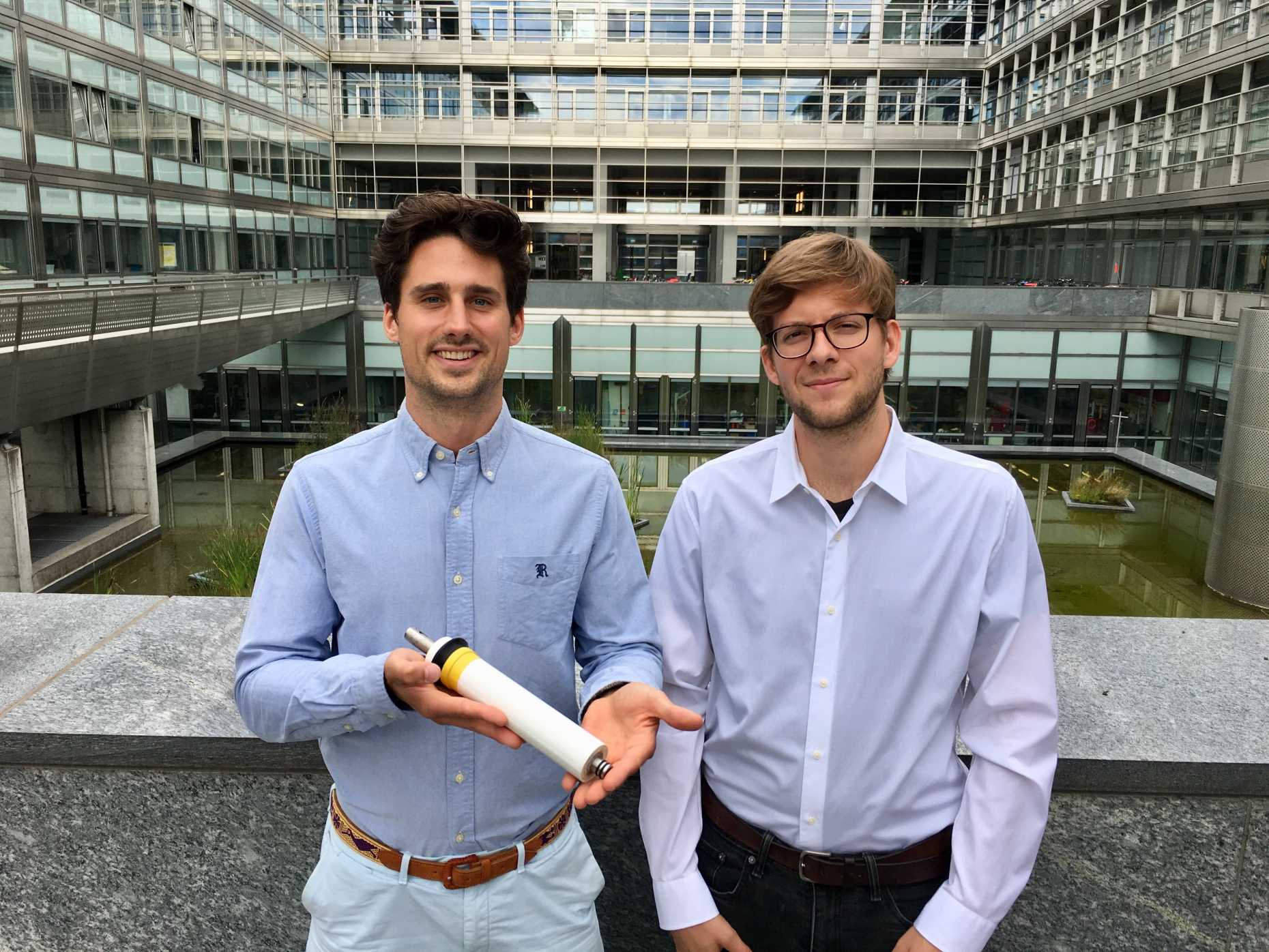Novel membrane saves energy
The purification of gases consumes a lot of energy, both for the production of plastics and for bottled oxygen. ETH spin-off Unisieve pursues a new approach to filtering.
We interviewed one of the two founders, CEO Samuel Hess.
To what extent can your technology help with the Corona Virus pandemic?
At the beginning of the pandemic, there was a shortage of bottled oxygen, which temporarily led us to develop membranes that can be used to enrich oxygen from the air. Since the oxygen supply seems to have returned to normal, our stopgap measure has not yet been used, but it is available for future oxygen shortages.
What are your main activities at present?
A considerable part of our activities currently focuses on scaling up membrane production. As a result, we are now able to produce larger quantities of O2/N2 separation membranes if there is a sudden need for them in the course of the current Covid-19 crisis.

Your technology could be important in mitigating climate change, the second global crisis, which is already acute in some areas. How does it reduce global CO2 emissions?
Our filters could replace gas purification by distillation. Fuels, chemicals, plastics - at present, all of these are made from petroleum. This requires chemical conversion, separation, and further processing of individual components of petroleum or crude oil, which consists of a mixture of substances.
The gas propylene is the world's second most important petroleum-based substance after ethylene. It is the basis for countless substances, but above all for plastics such as polypropylene, from which films, fibres, containers, packaging, lids, seals and the like are made. Propylene is separated from the other components by distillation after the crude oil has been steam cracked. This process step requires an enormous amount of energy: separation processes currently consume more than 10% of global energy.
Our filter technology can save up to 80% of the process energy and reduce the CO2 emissions associated with the production of propylene by up to 90%.
That is huge potential. What are your membranes made of and how are they produced?
In industrial processes, stable and flexible membranes are required to filter gases. We introduce zinc oxide nanoparticles into a polyether sulfone polymer layer. In the next step of the process, the nanoparticles act as nuclei to create a zeolite structure - directly in the pores of the polymer layer. Zeolite structures can efficiently "filter" other molecules. What is new is that we do not need a continuous zeolite layer because the nanoparticles are "built into" the pores. A continuous zeolite layer is rigid and brittle. Since we can do without this layer, we can create membranes that are mechanically stable and flexible at the same time.
UniSieve already has more than 10 collaboration partners in the industry. The membranes can not only purify propylene but also filter other substances. Are you planning to venture into industries other than the chemical industry?
We have carried out initial pilot tests in an industrial biogas plant, i.e. in the energy sector. The membranes have proven to be functional and stable. In 2021, we plan on pilot tests with the Spanish energy- and oil company Repsol. Repsol, by its own account, plans to be one of the first fossil fuel companies to become CO2-neutral by 2050, which is where our membrane technology can support the company.
What comes next?
We plan to produce the membranes on a large scale by 2022. The membranes are also suitable as an add-on solution to existing distillation plants, which keeps the process-related and financial risk for relevant customers manageable. Depending on how much the carbon tax continues to increase, the payback period for our technology, being short already, could be reduced even further.

Contact/Links:
external pageUniSievecall_made
Do you want to get more "News for Industry" stories?
external pageSubscribe to our newslettercall_made
external pageFollow us on LinkedIncall_made
Are you looking for research partners at ETH Zurich?
Contact ETH Industry Relations
ETH spin-offs: facts and figures
Since 1996, 437 spin-offs have been founded at ETH Zurich. ETH transfer, the technology transfer office at ETH Zurich, supports recognized ETH spin-offs in the founding process and in their first years of operation.
